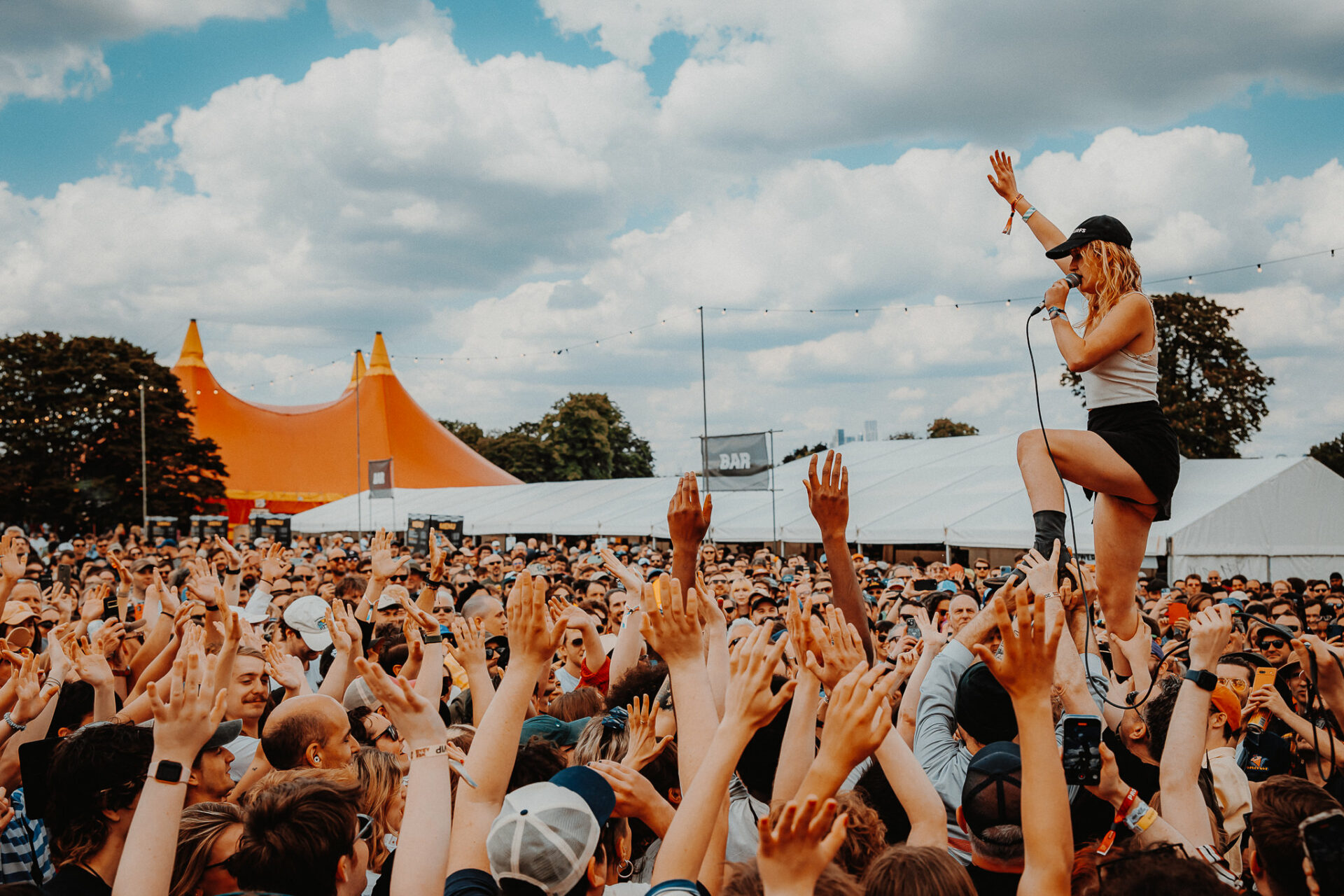Lambrini Girls: “We want men to speak up when they see things that aren’t OK”
The duo spoke exclusively to Rolling Stone UK at Wide Awake Festival.
By Nick Reilly

Lambrini Girls have opened up on the importance of addressing experiences of sexual assault within the music industry and the importance of calling out friends for improper behaviour.
The Brighton punk duo address the issue on their song ‘Boys In The Band’, which sees them take aim at musicians who take advantage of their status to commit heinous acts.
“Hide your drink, from the boys in music, Before you pass out in their limousine,” comes their stark warning on the song.
Taking aim at victim-blaming, they add: “It was completely your fault, you can’t prove it was assault. And you shouldn’t have got so drunk at their gig.”
Before performing the track at last weekend’s Wide Awake Festival, the pair also encouraged attendees to call out their friends whenever they are confronted with inappropriate behaviour.
Speaking backstage, vocalist Phoebe Lunny told Rolling Stone UK: “It’s really important to us. We’re both women, so it’s something that we can relate to directly because it’s one in four women.
“Any crowd can relate to what we’re saying because half the crowd has experienced it, it’s something which is happening constantly and it is a massive societal issue that we have. It does really just stem from the fact that people hate confrontation, calling out their friends and actually speaking to their friends about it.
“Especially in music scenes, everyone just wants to be popular. Everyone wants everyone to like them. So when they hear something dodgy, they don’t say anything.”
She went on: “I’ve been that person [who doesn’t anything] myself, I know I have. But it comes from opening a dialogue and educating yourself and learning and also relating to something hat you can’t really relate to yourself sometimes.”
Her bandmate, Lilly Maciera, added: “I think also what we’re trying to do is trying to get men specifically to take accountability and to get more involved in things that they are seeing happening. Because I think the issue applies to all of us. I don’t think it is just men, but because of the power dynamic that exists between men and women, I think generally it shouldn’t be this way, but men hold a lot of power. And I think there’s a difference between women being like, this is fucked up, this is not OK and a man saying that.
“I think the reason for this is because women can relate to experiences as such. And I think men generally can, but not all of them. And it’s less likely for men to be able to relate to these kinds of experiences because I think micro-aggressions are a part of our daily lives. I think they are part of all women’s daily lives, and I don’t think they’re a part of men’s daily lives. So I think it’s all about making men feel aware about their privilege and trying to get them to be able to identify situations that are not OK and trying to encourage men to speak up about things when they see things that are not OK”
Explaining how the song reflects the “social climate we’re in,” Maciera went on to explain how parallels can be made with the importance of speaking out against the ongoing war in Gaza.
“The genocide that’s happening at the moment is the same thing. We’re not directly affected by it, are we? But it’s very important to stand up for it,” she said.
Lunny added: “I think Lily touched on a very good point when we were on stage earlier and we were talking about the genocide happening in Palestine right now and there was arguably less cheers than there were when we were talking about other societal issues.
“Because for a lot of people, that is one of the things which in the West, we are so far removed from. We are complicit in that our lives can just continue as normal. And I think there’s a real sort of split and like a real strange dichotomy between sort of death and horror going on in one part of the world.”
Maciera concluded: “It’s kind of macabre, we get up in the morning and we have our breakfast and then we go and play a cool show at Wide Awake. And, you know, meanwhile there are people dying. That’s a really strange thing to navigate. And I think it’s important to remember that. You just have to look out and try and educate yourself and try and empathise and just try and put yourself in people’s shoes.”
